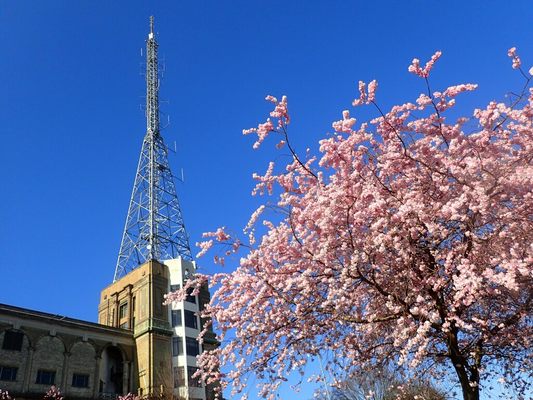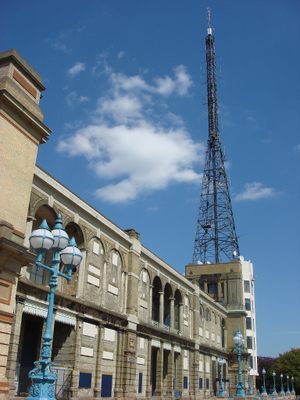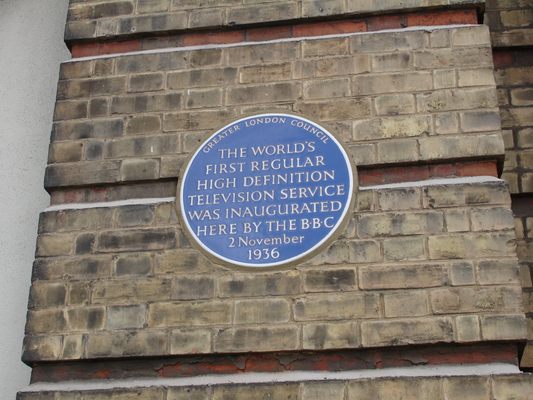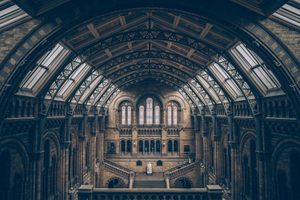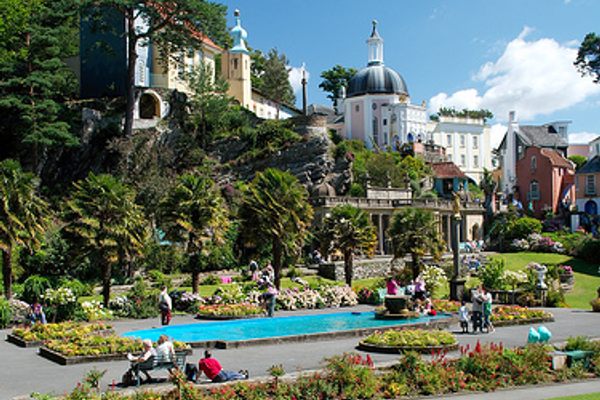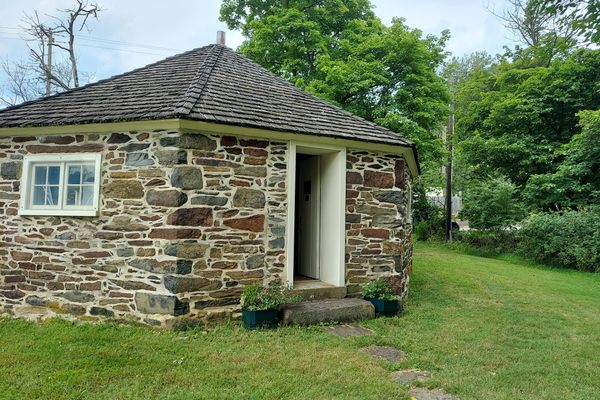About
Alexandra Palace is a large Victorian-era entertainment venue located in the North London borough of Haringey between Muswell Hill and Wood Green. The building was designed incorporating many architectural elements from the International Exhibition building in 1862 and opened in 1873, although a fire shortly after opening forced the building to close and then re-open in 1875. The exterior features stone and brick facades with many arches and large, ornate windows, while the interior currently contains a restored 19th-century theatre, an ice rink, and several spacious halls that are capable of hosting large exhibitions, live performances, banquets, and other events. Additionally, the palace is located within a grassy 196-acre park that has been a popular location for outdoor concerts and various family-oriented activities.
However, what stands out the most about Alexandra Palace is the incongruous 213-foot-tall transmitter mast located at the east corner of the building. This is the most historically important part of Alexandra Palace.
In 1935, the relatively new British Broadcasting Corporation (BBC) was looking for a place to set up their first television broadcasts, and they eventually decided to lease the East Wing of Alexandra Palace. Several of the large halls within the building were converted into TV studios, the transmitter mast was erected on the building's corner, and the BBC started broadcasting from the site on November 2, 1936. These were the first regularly scheduled television broadcasts in history.
The BBC studios at Alexandra Palace would go on to create new and pioneering TV formats, including the first TV gardening program, the first cooking program, the first children’s program, and the first UK election night news broadcasts. Additionally, coverage of many major news events was broadcast from Alexandra Palace, including Queen Elizabeth II’s coronation and John F. Kennedy’s assassination.
Over time, though, the BBC moved its broadcasting activities to other locations. From 1956 onwards, the BBC used Alexandra Palace solely for news broadcasts, and then, in 1981, the BBC left the building altogether.
However, the transmitter mast is now recognized as a major part of the BBC’s history, and an official blue plaque was placed on the building by the Greater London Council to note the historic importance of the world’s first TV transmission from this site. The transmitter mast has also been given Grade II Listed status along with the rest of Alexandra Palace, thus guaranteeing that this out-of-place structure will remain at this site for future generations to see.
Related Tags
Know Before You Go
As stated above, Alexandra Palace, including the transmitter mast, is located on the hill at the center of Alexandra Park. The entire building is visible from many locations within the park as well as the railway to the east of the park. The park is open 24 hours a day. Different parts of the building have different opening times; refer to the website for more information. Both the building and the park are fully accessible.
Alexandra Palace’s location in North London provides it with very good transportation links. Aside from the rail line to the east of the park, which includes a station named Alexandra Palace, two Underground lines also travel to nearby Highgate and Wood Green, and many bus routes cross through the area, with W3 passing right in front of the palace. Parking is also available in several locations throughout the park, although the car parks (parking lots) close in the evening.
Published
August 9, 2024
